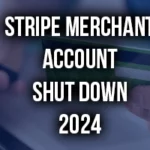How Do You Set Up an Online Merchant Account?
If you want to enter the world of online selling and ecommerce, one major step in the process is setting up what’s known as a Merchant Account.
This specialized bank account is what will enable you to accept credit card payments.
But beware! Not all merchant accounts are the same.
Before you choose a particular Internet merchant account (also known as an online merchant account), it’s good to have some knowledge about how a merchant account works with all of the other parts of the online selling process, such as:
- Payment Gateways
- Payment Processing
- Shopping Carts
Some payment services combine one or more of these elements. Still, it’s important to know what each of the parts is, and how they work together.
There are many different merchant account providers out there. But only one brings together the great customer service you want, along with award-winning features. And that’s Easy Pay Direct!
Read on to find out how Easy Pay Direct can help you navigate the maze of internet merchant accounts.
What is an Online Merchant Account?
Simply put, an online merchant account is a bank account which enables a business to accept payments in the form of credit cards and debit cards.
In the world of ecommerce, this is crucial — no one wants to send paper checks any more!
When setting up a real merchant account (as opposed to using a ‘payment aggregator,’ which we’ll talk about later), there’s always an approval process.
Easy Pay Direct has the best approval rate in the industry!
Before getting approved, though, the first step is to qualify with one of any number of merchant account providers.
During this application process, any reputable processor will ask for a host of information including, but not limited to:
- The type of business you have
- The products or services you offer
- Typical sales information; at least a month, but a year is better
- Your last three months of processing statements
- Your articles of incorporation
- A voided check
Additionally, the business owner applying for the merchant account will be subject to a credit check upon approval.
You want to be asked for this information.
This is a process called underwriting, which is how merchant account providers offer better rates than the aggregators do.
Any merchant account provider is going to need this information, and it’s especially important for online merchant accounts.
This information allows the merchant account provider not only to understand you and your business model, but also to get a grasp on the potential risks involved.
If you already have a merchant account, EPD will work with it. If you need help setting one up, Easy Pay Direct will tackle that for you!
How do Internet Merchant Accounts Work?
When we’re talking about merchant accounts, we’re referring to a particular type of bank account for your business.
You can think of it as a holding tank, or as escrow.
When your customer makes a purchase from you, their payment is deposited into your merchant account.
Only after this payment is verified by all entities involved (issuing bank, acquiring bank, etc) is their money sent to your business bank account (that you can withdraw from).
In other words, your merchant account is completely separate from your business bank account.
Typically, a merchant will have no control over their own merchant account. The merchant account acts as the “middleman” between your business bank account and your customer’s payment.
Okay, that’s great. But why have a middleman at all?
Wouldn’t it be simpler — and easier to accept payments, then get that money dropped directly into your business bank account?
Sadly, that’s not the way modern payment card processing works.
When your customer offers a payment to you, that transaction includes two additional significant parties.
The first of these parties is the issuing bank. This is the entity that provides payment cards to the customer, and who collects payments from the customer (by drawing on the customer’s bank).
The other major party is the acquiring bank. This entity requests payments from the issuing bank, collects those payments, and subsequently releases the payments to the merchant.
The acquiring bank then asks the issuing bank for the funds. The issuing bank verifies the customer has those funds available to them. Assuming the funds are present, they are then transferred.
All of this makes for a pretty complicated process. And as you might imagine, there are a lot of security considerations involved. Easy Pay Direct is 100% compliant with the security standards of the payment card industry!
The amazing thing is that it doesn’t take very long to take place.
You can see how the merchant account functions like a “holding space” during this transaction tango. You might even think of it as a temporary line of credit.
Traditional Merchant Accounts and Online Merchant Accounts
Most traditional merchant account providers focus mainly on face-to-face transactions, and the tools brick-and-mortar merchants need.
As an Internet merchant, though, your needs are rather different.
You want to make sure you’re getting an online (Internet) merchant account. These types of accounts offer more in terms of eCommerce services and tools.
For one, you’ll need a payment gateway.
The gateway acts as the middle ground between your shopping cart and your payment processors.
Remember, cart applications are not allowed to share payment information directly with processors because of potential security threats.
You’ll also need a shopping cart.
No, we’re not referring to the kind you push around the store.
In this case, a shopping cart is a software-based tool that collects a customer’s buying choices and payment information.
Some merchant account providers will provide an online store or shopping cart for you.
Finally, because there are so many moving parts necessary to get payments to you, the business owner, you should consider compatibility and interoperability.
Your merchant account needs to work with other eCommerce software vendors who offer subscription software, marketing tools, and of course shopping carts.
Easy Pay Direct knows the ins and out of the payment card industry. So if you tell us about your business, we can recommend the right gateways, online stores, and shopping carts for you.
Internet Merchant Accounts and Payment Aggregators
When choosing a way to process your payments, you get to choose between two types of providers.
The first are direct processors, or merchant account providers like we’ve been talking about in this article. Easy Pay Direct is one of these.
There are also third-party payment processors like Stripe, PayPal, and Square. These are known as payment service providers, or more commonly, payment aggregators.
Creating an account with an aggregator is much simpler and faster than setting up a regular internet merchant account.
Why?
Because these aggregators don’t give each merchant their own account. Instead, they lump all their merchants into one gigantic account.
What does this mean to you, the business owner?
For one, aggregators don’t really know your business.
Getting the account is easier because they don’t do any underwriting. They don’t collect any data about the type of business you have or your offerings. And they don’t know what a “typical” month for you looks like.
So a third-party processor has to look at your activity very closely.
And if they see anything they think is strange, all they can do is hold your funds or close your account.
That’s not to say working with payment aggregators is a bad thing. It’s easy to get set up with them, and they usually offer flat-rate pricing.
There are typically few fees to pay, if any. And there are rarely any monthly transaction minimums to meet.
So aggregators are great when your business is new and you want to begin taking card payments — remember that providing a business history is part of the underwriting process.
With direct processors, on the other hand, you’ll be paying more in the way of fees.
And you should be doing $5-10K or more per month in card transactions.
Also, you won’t be paying flat-rate fees. The fees you’ll be paying really depend on the industry you’re working in and the business model you’re using.
At the same time, though, once you’re doing more than $10,000 a month, online merchant accounts offer a greater cost savings than the aggregators do.
As your volume increases, you’ll find that you qualify for more and more discounts.
Fraud and Internet Merchant Accounts
If a merchant account provider suspects fraud, they will take steps to protect themselves.
If there is no proper underwriting (as with an aggregator), there are only a few possibilities: They will freeze your funds, suspend your account, or even close it altogether.
A less common approach is to reduce your credit limit. This limits your ability to process sales each month.
Each of these measures shelters the merchant account provider from the risk of additional returns and chargebacks, which they are obligated to cover if you can’t.
Comprehensive underwriting is therefore a crucial element of a stable online merchant account.
You also want to be sure that your merchant account’s monthly credit limit is large enough to cover the charges you predict you’ll have each month.
At the same time, be aware that higher limits are typically scrutinized more heavily.
Therefore, it is often beneficial for a business owner to set up two smaller accounts. And if you have more than one merchant account, you can use Easy Pay Direct’s patent-pending Transaction Routing Technology to make sure things work right for you.
Typically, this is best done with the guidance of an online payment expert who has been trained in the process. Easy Pay Direct has these ready to work for you!
Internet Merchant Account Gateways
We mentioned merchant account gateways above. But what are they?
A payment gateway mediates the transaction between your online shopping cart and your payment processors.
Due to potential security threats, shopping cart applications are not allowed to share (send or receive) transaction information directly with payment processors.
A payment gateway solves this issue by fulfilling all the requirements for security — all so that real-time transactions can happen online without the need to physically present a payment card.
Most payment gateways will offer the basics — the ability to run transactions. Many of them, however, offer additional features such as email invoicing and recurring billing.
It’s important to know not only which features you’re signing up for, but also to know what elements you’ll be charged for, and which you won’t.
Some gateways offer recurring billing as a basic feature, and others do not.
Remember to look at the true, final cost, and make sure it has all the features you’ll be using — and not those that you won’t.
It’s also worth noting that if you’re setting up a “high risk” merchant account, your gateway should be set up with load balancing. Your friends at Easy Pay Direct offer this kind of technology — at no extra cost to you!
Online Merchant Account Providers Should Know You
Any proper processor can get you a merchant account.
Using a processor that specializes in your industry, though, will ensure that it is done correctly.
Aggregators like Stripe, Square, and PayPal are great when you need to set up your merchant account quickly.
However, they carry with them the potential cost of withholding funds, suspended accounts, or even outright account termination.
After all, with any business it’s inevitable to have customers demand refunds or even chargebacks.
An experienced processor that is familiar with your industry will have already anticipated any issues. They will work with you accordingly, so you’re not left out in the cold when the inevitable happens.
It’s also crucial for you to know your online merchant account processor. And that’s easy to do with Easy Pay Direct — we’re based in the U.S., and we’re just a phone call away.
Because online resources have expanded so rapidly, it is now appealing (and altogether too common) for companies to outsource many aspects of their businesses.
Sure, outsourcing might be very cost-effective for the company. But one unfortunate and common consequence for the consumer is subpar customer service.
Outsourcing can be a very good thing.
If you can’t get a live person on the phone, one that you can communicate effectively with, then it can mean serious frustration for you — not to mention possibly costing you the well-being of your business.
Before you sign up with a processor, make sure from the beginning that they’re helpful and responsive to your questions.
They should be working actively to make sure you feel comfortable, so you can commit to them with peace of mind.
Online Merchant Account Fees
When you look into getting an online merchant account, it pays to be aware of the fees you’ll have to pay.
Online transactions are usually going to incur higher fees than traditional brick-and-mortar retailers will. There’s no way around that.
The reason online merchants incur higher fees is because it’s easier for people to carry out fraudulent acts online, in situations where the physical payment card is not present.
To compensate for this, credit card companies will spread this risk out among all online businesses accepting cards.
Sometimes a merchant account provider will offer you a retail rate of 1.59% — but this great rate will not apply to any online transactions.
Keep this in mind so you don’t get any odd financial “surprises” in your statements!
Choosing the Best Online Merchant Account for You
We’ve gone over a lot of information here. Feeling overwhelmed yet?
If so, don’t panic.
Easy Pay Direct knows online merchant accounts forward and backward.
We’re here to help you make sense of the online card processing world.
We are happy to share our knowledge with you — whether you need to know about online merchant account pricing, features, or if you want to know about other services to avoid, look no further than Easy Pay Direct!










